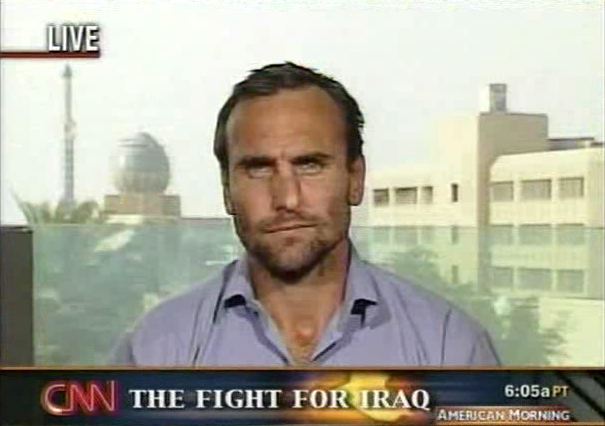AAM: “A black hole in...Bush’s global war on terror”

Click photo to play
Length: 4:48
MILES O'BRIEN: At least seven people are dead after gunmen attacked a Shiite mosque northeast of Baghdad. Police say the attackers fired six mortar rounds and then detonated explosives around that mosque.
CNN's Michael Ware just got back from being embedded with U.S. forces in the western Iraqi town of Ramadi. Ramadi is within the so-called Sunni Triangle. Insurgent activity there remains strong. Gun battles are a daily occurrence.
He joins us now from Baghdad.
Michael, good morning to you.
MICHAEL WARE, CNN CORRESPONDENT: Miles, good morning.
In Ramadi, in western al-Anbar province, we see what can only be described as a black hole in President Bush's global war on terror. As the president is going through his series of speeches to reassure the American people and to inform them about the success and the progress of his war on terror, there in al-Anbar we see that al-Qaeda at its very heart has been found, identified, yet is not being struck at.
In one of his speeches last week, the president referred to Osama bin Laden and his number two, Ayman al-Zawahiri. They make it very clear that Iraq is the centerpiece of their war against America, and that within that centerpiece of Iraq it is al-Anbar, it is Ramadi which is the toehold from which they will build their base. What we know is that al-Qaeda in Iraq uses this area as its headquarters. This is where its leaders hide, move, plan. Yet, what is happening? America does not have enough troops to send out there.
Al-Qaeda is almost untouched in its area of operations, and in the city of Ramadi itself, al-Qaeda fighters are constantly attacking U.S. troops. Brigades sent to Ramadi are losing, on average, 100 American soldiers and Marines every year. And we don't see that abating.
So, here's the heart of al-Qaeda in Iraq, and there's simply not enough troops and no strategy to combat it -- Miles.
M. O'BRIEN: Well, Michael, you have talked to the people on the ground there. I'm sure they probably don't say it for the record, but how many troops do they think they need in order to get a hold of this problem?
WARE: Well, officially, from Baghdad to Ramadi, the response you will get from American commanders is that we have an appropriate level of force to do what we have to do within the confines of our mission. However, the key term that all of them use is "economy of force."
They say that "we are applying an economy of force mission." That in itself is an admission that they don't have the full number of troops that they need to do what actually has to be done.
Privately, offline, what commanders, again, from Baghdad to Ramadi, will tell you is that they need at least three times as many troops as they currently have there now, be that Iraqi and American or, even better, just three times as many as American troops.
I mean, there's an area there north of the Euphrates River that is used by al-Qaeda's top leadership that Osama bin Laden himself points to. It's the size of New Hampshire. You have only a few hundred American troops there. They can do nothing to hamper al-Qaeda's leadership in that area -- Miles.
M. O'BRIEN: And a final thought here. To what extent are these al-Qaeda leaders in cahoots with the homegrown insurgency? And if there is a relationship, who is taking orders from whom?
WARE: Well, this is one of the most fascinating things about it. I mean, since the inception of this war, we have seen al-Qaeda global jihad introduced to a country where it never exists. And like a cancer, once one cell appears, it begins to metastasize.
So what we have seen, throughout the country but particularly in Ramadi, is al-Qaeda -- through its money, its motivation, its tactic, its ideology -- hijack the local fight. So in Ramadi, it's actually the al-Qaeda front line.
Al-Qaeda dominates all the other groups so effectively that it is in charge. So, this is where American Marines and soldiers go face to face every day with the very organization that attacked the World Trade Center and the Pentagon, and yet it seems that they're being forced to do so under-resourced and with one arm tied behind their back -- Miles.
M. O'BRIEN: We'll leave it at that.
Michael Ware in Baghdad.
Thank you very much -- Soledad.
